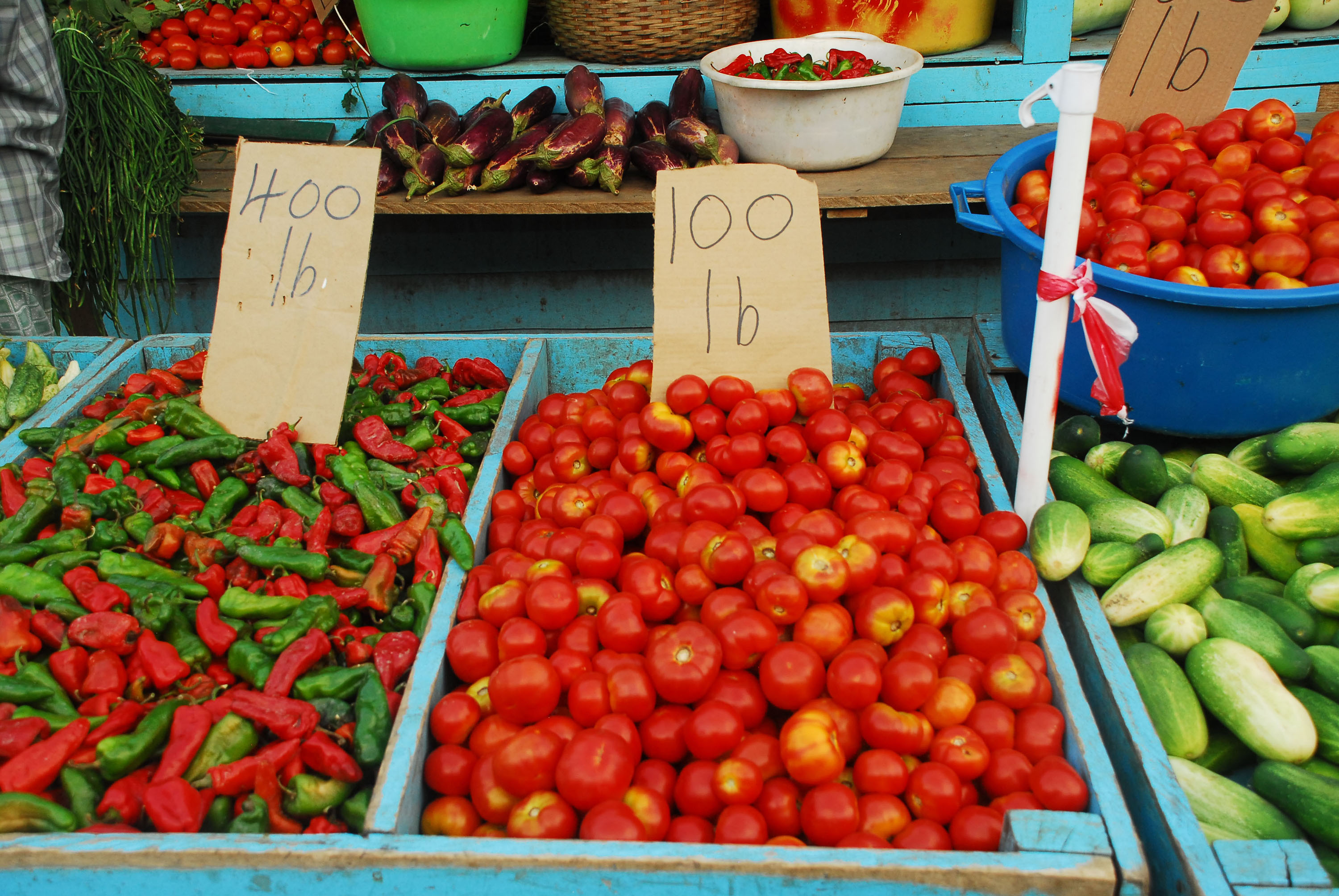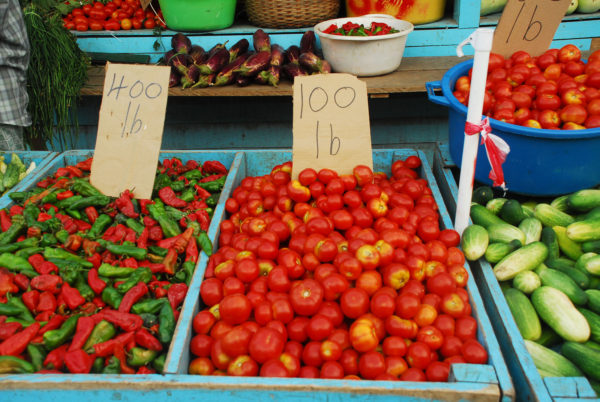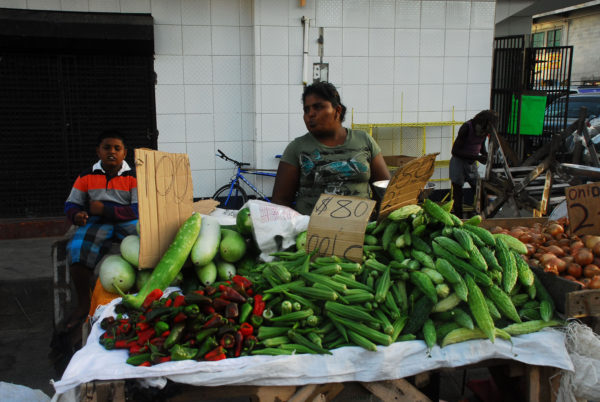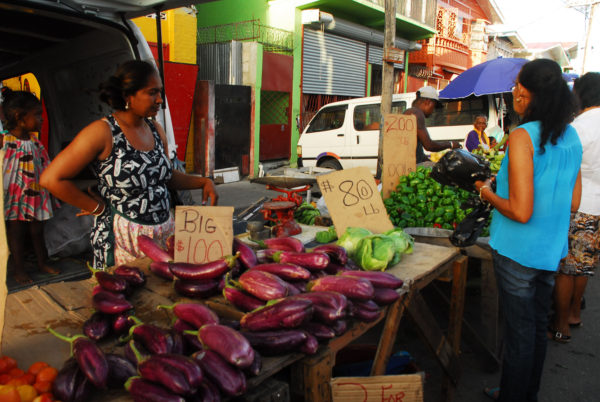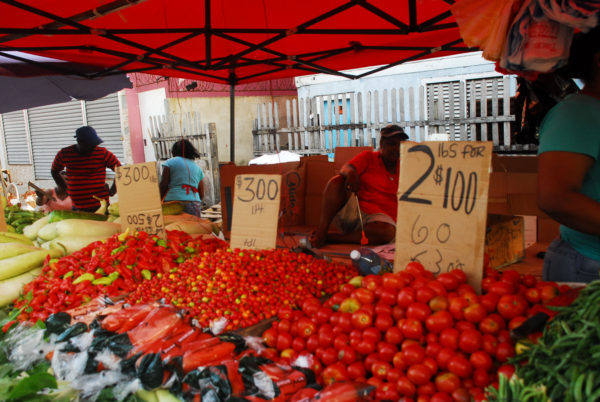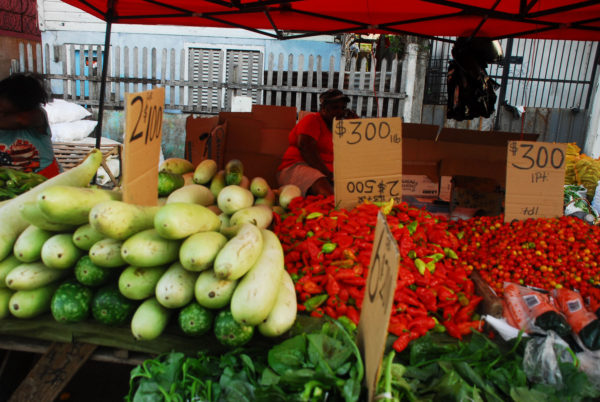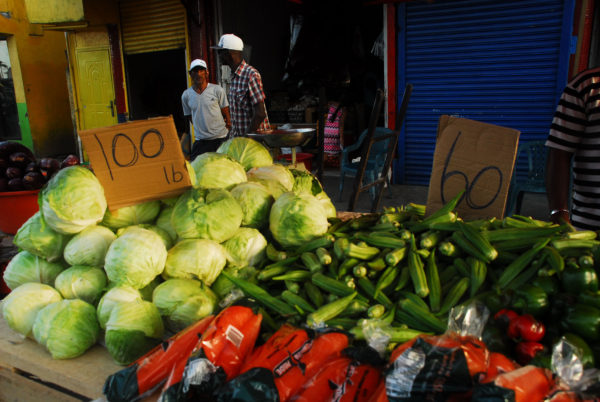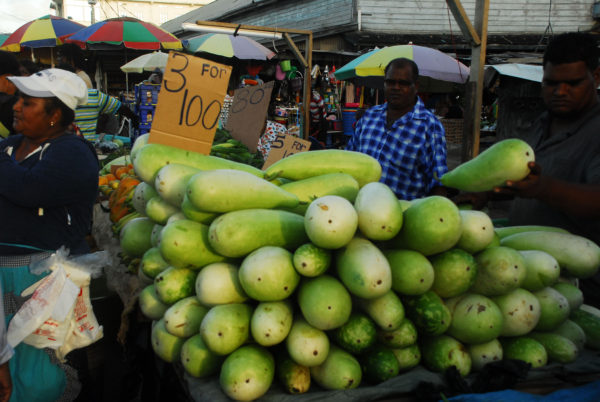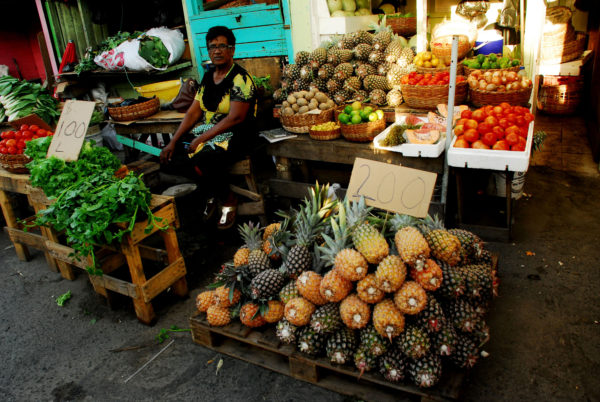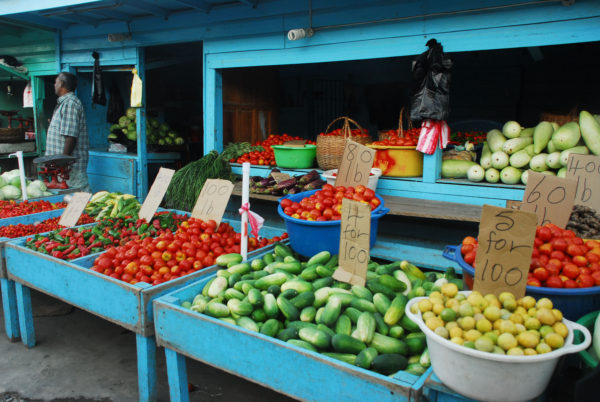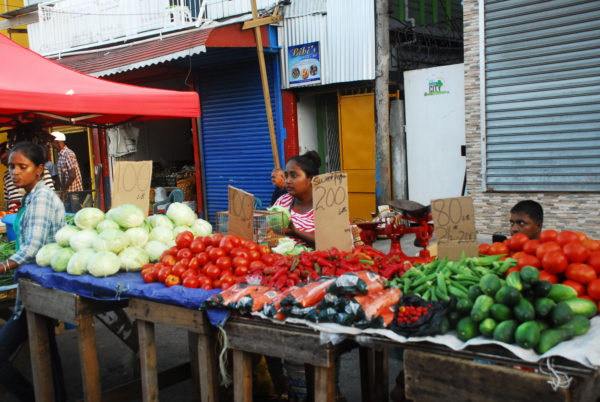The past three weeks or so of prevailing rock-bottom prices for greens and vegetables in local municipal markets attested to the possibilities that obtain in the widely-held view the Guyana can indeed be the food security hub of the Caribbean Community (Caricom). And providing we can get our food security protocols in our order we can find lucrative markets further afield, particularly in North America, where a continually growing and increasingly visible diaspora would appear to be cultivating a collective appreciation of things Caribbean.
In recent weeks, the available evidence in our markets suggests that food supplies overpower, by a considerable margin, consumer demand, and as a consequence lower prices. But with the relative handful of consumers in the market arriving at their optimum in terms of greens and vegetable requirements and the failure to create anything even remotely resembling a meaningful external market, an altogether different set of dynamics step in.
This past week, particularly, has witnessed a relentless surge of greens and vegetables onto the market, sharp reductions in prices and attendant short-term spike in demand followed by a near complete disappearance of customers, even though, perhaps, the Easter weekend might yet bring a short-term surge in demand for greens, fruit and vegetables. In the meantime, however, the abundance of the market has ushered in depressing downside for farmers and vendors. By mid-week, consumer demand appeared to have reduced to a trickle, whilst mountains of greens and vegetables were displayed on vulnerable-looking stands at knock-down prices and presided over by gloomy-looking vendors.
The prices published as part of this article obtained as of Wednesday of this week.
 Chief Executive Officer of the National Agricultural Research and Extension Institute (NAREI) Dr Oudho Homenauth appeared unsurprised by the phenomenon of plenty. He puts it down to a “glut” of greens and vegetables on the market and the inability of consumer demand to keep pace with production. He makes a further, perhaps more significant point, indicating what he says has been the painfully slow pace in the growth of the agro-processing sector and what this has meant for diversification into manufactured products. It has failed to keep pace with the expansion of the farming sector. Our failure to capitalize on our manufacturing potential has created problems in more ways than one. Apart from the spoilage and attendant loss of earnings that result from resort to dumping there is the missed opportunity to secure regional and extra-regional markets for pickles, jams, jellies, pepper sauces and other byproducts of our agricultural sector.
Chief Executive Officer of the National Agricultural Research and Extension Institute (NAREI) Dr Oudho Homenauth appeared unsurprised by the phenomenon of plenty. He puts it down to a “glut” of greens and vegetables on the market and the inability of consumer demand to keep pace with production. He makes a further, perhaps more significant point, indicating what he says has been the painfully slow pace in the growth of the agro-processing sector and what this has meant for diversification into manufactured products. It has failed to keep pace with the expansion of the farming sector. Our failure to capitalize on our manufacturing potential has created problems in more ways than one. Apart from the spoilage and attendant loss of earnings that result from resort to dumping there is the missed opportunity to secure regional and extra-regional markets for pickles, jams, jellies, pepper sauces and other byproducts of our agricultural sector.
On the ground earlier this week, the surge in greens and vegetable supply on the market was manifesting in various ways. Dr Homenauth had told Stabroek Business about the market that had been created in Barbados for local watermelon. On Wednesday, Stabroek Business witnessed part of an ongoing transaction between what appeared to be two regional buyers and a local farmer/vendor. The items in question were watermelon and pumpkin and from the look of things it appeared as though the foreigners had wandered accidentally into the prevailing glut and were in the process of seeking to take advantage of it.
Elsewhere, we saw small, intense huddles of vendors and wholesalers, the latter offering quantities of greens and vegetables at knock-down prices and on credit; the former, weighing the risks, momentarily, then mostly declining. The prospects of eventual dumping and considerable loss of earnings loomed large.
The precarious nature of the situation was eminently manifested in the stark difference between the modest number of buyers who had ventured into the Bourda Market on Wednesday and the huge mountains of greens, vegetables and fruit that stood like monuments to the hard work of the farmers. The buyers had long sized up the situation and were in the mood to make deals. Baskets of boulangers and cabbages, already being offered at low prices, appeared to be targets for negotiations and the buyers were having their way.
On Robb Street Nazeem was contemplating his considerable stock of sweet pepper, carilla and squash with a resigned look on his face. His primary concern, he said, was with greens and vegetables from his farm that were due to arrive at the market later on.
